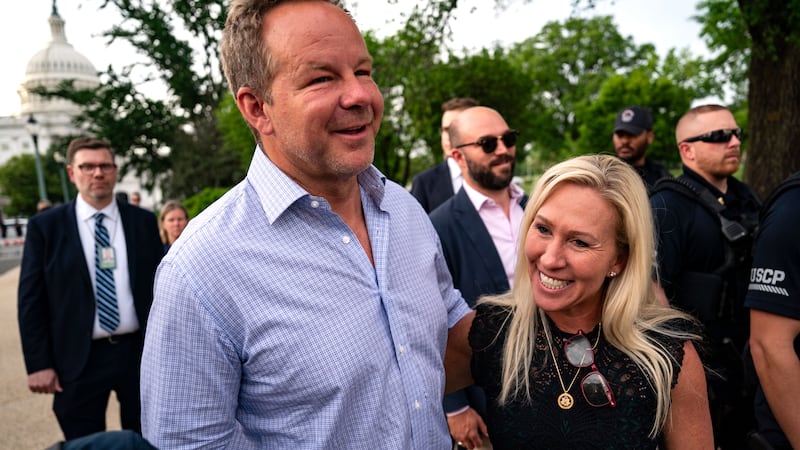ATLANTA — State lawmakers late Tuesday night passed a bill meant to limit the right of lawyers who serve in the General Assembly to delay their clients’ court appearances.
House Speaker David Ralston announced plans to tighten the law after a joint investigation by The Atlanta Journal-Constitution and Channel 2 Action News revealed numerous occasions where he had made claims of legislative business to put off cases. Alleged victims of some of his law firm's criminal clients said the speaker's leave requests had unfairly denied them justice as some cases stretched out for years.In one child molestation case in Cherokee County, Ralston filed 28 delays over four years, and the district attorney finally dropped the charges.
[READ: Families accuse state Speaker of the House of intentionally delaying court cases]
Ralston said he had done nothing wrong. But to address any concerns, last month he named an advisory panel of current and former lawmakers, attorneys, judges and a victims’ advocate to examine whether the state law should be revised.
Under the bill, lawyer-legislators would continue to be automatically granted leave from court when the General Assembly is in session and for one week before and three weeks after.
At most other times, prosecutors, opposing attorneys, judges and other “interested parties” could object to leave requests.
Judges would then have to rule on whether to grant leave based on a variety of factors including the age of the case and whether the leave request subverts justice.
Lawyer-legislators would have a right to leave for scheduled legislative committee meetings if handling a civil case.
TRENDING STORIES:
- Freaknik returns to Atlanta this summer in family-friendly form
- MISSING: 12-year-old girl last seen at Walmart with 2 men
- Former Braves manager Bobby Cox suffers possible stroke
An attorney on a criminal case who serves in the Legislature, however, would have to apply for leave for committee meetings and a judge could grant it at his or her discretion.
The stricter procedure for attorneys on criminal cases seeking a leave to attend a committee meeting was added in the Senate, which passed HB-502 unanimously. The House passed the bill with a lone dissenting vote, Rep. Matt Gurtler, R-Tiger.
Former House Republican Whip Edward Lindsey, who Ralston appointed to the advisory committee that reviewed the leave law, said he and committee members spent time studying AJC and Channel 2 reporting, spoke with victims who had been impacted by legislative leave and attorneys who had been on the other side of the delays.
[READ: New push to change legislative leave law as Ralston continues to deflect criticism]
"We had, from the very beginning, the consensus that the details of the way the leave policy worked needed to be changed," he said. "I'm pleased the General Assembly moved forward with our proposal."
Critics have countered that the new changes to the leave law, which heads to Gov. Brian Kemp for his signature, will do little to address potential abuses by powerful politicians because it relies on judges’ willingness to stand up to them.
“We all know what kind of power and authority come with the position of speaker,” said Rep. Scot Turner, R-Holly Springs, who has been one of Ralston’s most outspoken critics. “It’s an incredibly powerful position in our body. The purse strings of the budget are held very tightly.”
Ralston has denied that his legislative power translates into power in the courtroom.
[READ: State lawmaker calls for Georgia speaker Ralston to resign]
"I may have a little control here, but I have no control over courtrooms in the mountains of North Georgia,” he said in a speech last month in the House. “Those are under the control of a judge and/or a prosecutor.”While the bill passed by a large margin, some criticized the methods used to rush the bill through the legislative process.
Ralston’s advisory group was co-chaired by former lawmaker-turned-lobbyist Lindsey and Ronnie Mabra, another former lawmaker and personal injury attorney. It conducted its meetings via teleconference.
Lindsey told the AJC that in drafting the proposal, the group took into account the concerns that had been raised.However, the alleged victims in criminal cases said they were never consulted. In a meeting of the Senate Rules committee last Thursday, some senators complained they were shut out of the process, too. Senate President Pro Tem Butch Miller, R-Gainesville, worried that bill was being rushed.
“This clearly needs some additional discussion,” he said. “We need to do it right. Let’s not get in a hurry.”Rules Chairman Jeff Mullis, R-Chickamauga, said he was convinced, though, that the Senate would get its say on the bill.
[READ: Georgia Speaker Ralston fires back at criticism]
“We’re changing the bill twice,” he said. “(The House is) going to disagree and we are going to go to a conference committee.”
The Senate did take the opportunity to expand the bill a bit further, amending it in committee to allow legislators automatic delays for party caucus meetings, national legislative conferences and study committee meetings, all of which generally happen outside of regular session.
GOP Caucus Chairman Sen. Joe Kennedy, an attorney in private practice, questioned whether caucus meetings were more “political” than legislative.
“I think our caucus would have a tough time without our leader,” said Sen. Bill Cowsert, R-Athens, another attorney.
“We’ll have fewer lawyers in the Legislature,” he said, echoing a widely held belief that legislative demands discourage lawyers from seeking office.
AJC Staff writers Mark Niesse and Maya Prabhu contributed to this report.
Cox Media Group




